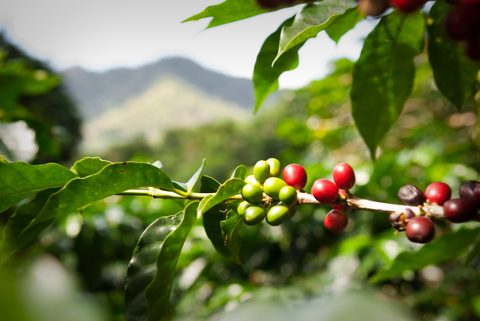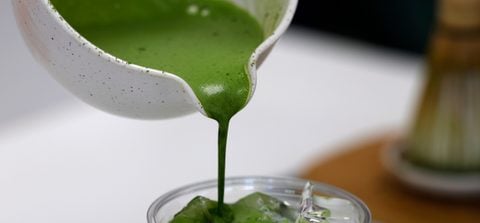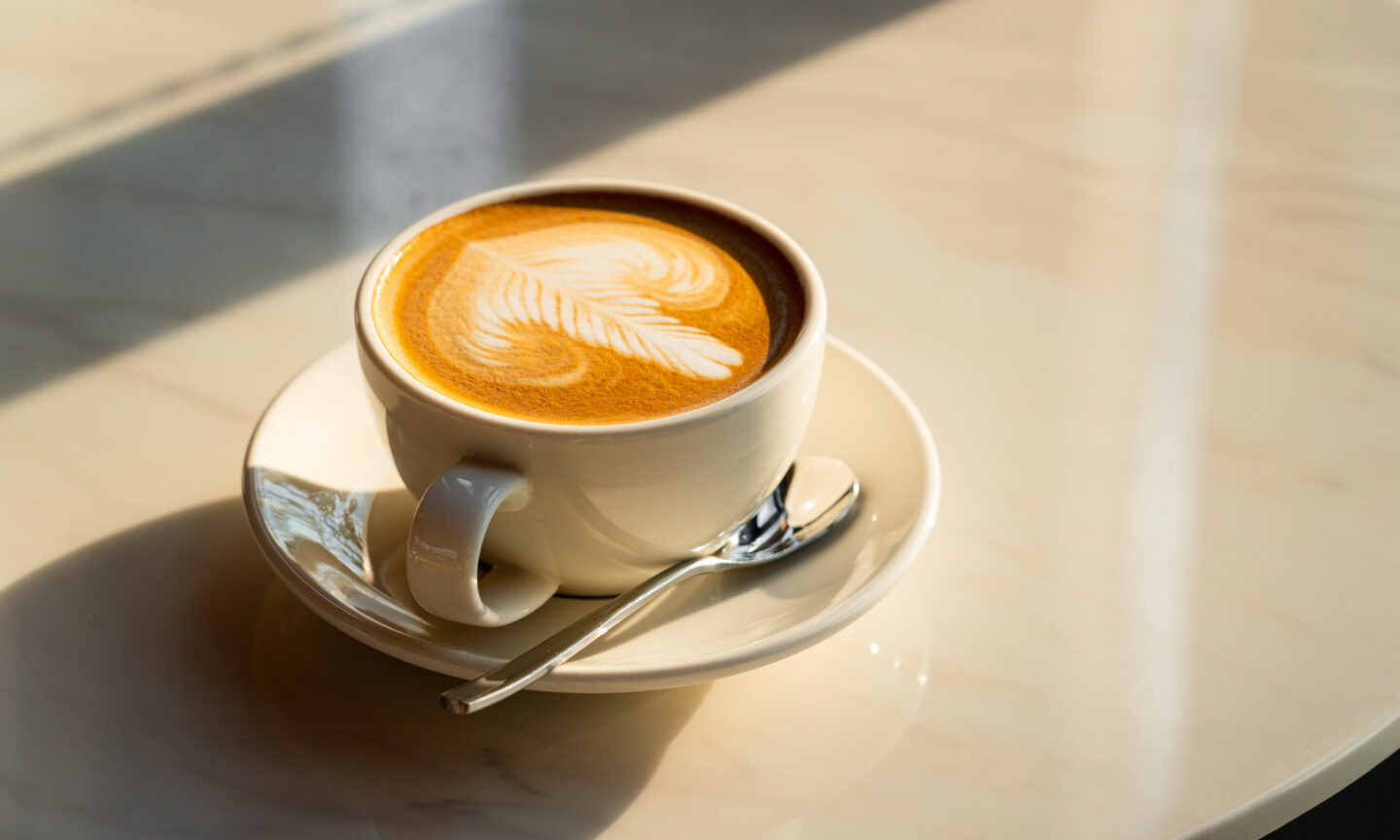Nerd’s Eye View
A weekly take a look at what’s new and trending in private finance.
Espresso costs are on the boil: Two-thirds of American adults drink espresso day-after-day, in keeping with the newest annual report from the Nationwide Espresso Affiliation (NCA), and we down an common of three cups day by day.
That provides as much as lots of of thousands and thousands of cups every day, making it the most-consumed beverage in America, beating out bottled water, tea, juice and soda.
Most of us brew it at house, however sufficient of us drink it on the run to maintain greater than 17,000 Starbucks, nearly 10,000 Dunkin’ Donuts and tens of 1000’s of different espresso homes afloat. Whole financial affect of the espresso business within the U.S. in keeping with a 2023 NCA report: $343.2 billion, supporting 2.2 million jobs.

The factor about espresso, after all, is that we don’t develop it ourselves. In reality, lower than 1% of what we devour is grown within the U.S., primarily in Hawaii and Puerto Rico, which lie inside the tropical “coffee belt.” No different a part of the nation is appropriate for large-scale espresso manufacturing.
That hasn’t spared espresso from the barrage of tariffs unleashed in current months by President Donald Trump. And people tariffs are knocking the espresso business sideways, significantly the levy on Brazil — by far the world’s greatest producer of espresso beans. Tariffs on imports from Brazil jumped from 10% to 50% on Aug. 6.
We talked to espresso insiders for a deep dive on what tariffs are doing to the market, and the information for espresso drinkers isn’t cheery. Nearly all coffee-producing nations are actually topic to tariffs. These tariffs are paid by importers, who cross them alongside to roasters, who will, ultimately, cross them alongside to … you.
That is on prime of a steep climb within the retail value of roasted espresso even earlier than tariffs kicked in. Have a look.
Worth hikes lately are the results of droughts in Brazil and in one other large producer, Vietnam. And people droughts have been tied to local weather change, which is predicted to vastly change the coffee-growing panorama within the many years to return.
Espresso yields are already falling world wide, and experiences have projected that the realm out there for espresso manufacturing might be halved by 2050.
So what’s a espresso drinker to do? Espresso, after all, is available in many kinds, and plenty of worth factors. And habits could already be shifting: the 2025 NCA report exhibits that 71% of espresso drinkers brewed their day by day cups at house — in comparison with 63% in 2020. One of many roasters we talked to mentioned he sees indicators that customers are looking for gross sales extra.
After all, there are alternate options to espresso — however they’re topic to most of the identical pressures.
Matcha — a inexperienced tea powder deeply rooted in Japanese tea ceremonies — is a social media staple and a rising cafe favourite throughout the U.S.

However the combo of on-line hype driving demand and new tariffs hitting imports means costs are prone to rise — and shortly.
The already-pricey inexperienced tea leaves are grown primarily on small farms in Japan, the place manufacturing is time-intensive — excess of most individuals understand. That makes it unimaginable to ramp up provide shortly and the few U.S. matcha growers gained’t be capable to fill the hole. Matcha could appear to be an indulgence now, however it’s about to value much more. Learn on.
In different beverage information: The share of People who say they devour alcohol has fallen to the bottom degree ever in 2025, in keeping with the newest Consumption Habits survey from Gallup. And when you think about that Gallup has been conducting this survey since 1939 … effectively, that’s saying one thing.
Within the 2025 survey, 54% of People reported ingesting alcohol, down from 58% in 2024. Earlier than that, from 1997 to 2023, that determine stayed above 60%. The earlier all-time low was 55% in 1958, the underside of a post-war lull in consumption.
Peak ingesting? That might have been 1974 to 1981, when all-time highs of 68% to 71% had been recorded.
Well being issues look like driving the decline. For the primary time since Gallup began monitoring perceived well being results of alcohol in 2001, a majority of these surveyed (53%) say ingesting moderately (one or two drinks a day) is unhealthy for one’s well being.
Past drinks
This week in tariffs: On Thursday, the European Union and United States introduced a framework for a brand new commerce deal. Below the framework, which the 2 nations are nonetheless negotiating, the EU commits to eliminating tariffs on all U.S. industrial items and giving preferential entry for quite a lot of U.S. agricultural and seafood merchandise.
The U.S., in return, says it’s going to apply “most favored nation” or 15% baseline tariffs (whichever is greater) on EU plane and components, cork, lumber, semiconductors, prescription drugs and sure pure sources. The U.S. may additionally decrease auto tariffs to fifteen% contingent on EU legislative motion. The worldwide 50% tariff on metal and aluminium stays in impact.
In alternate, the EU says it’s going to buy $750 billion value of U.S. power and make investments at the very least $40 billion in U.S. synthetic intelligence chips for information facilities. The EU additionally guarantees to take a position $600 billion in strategic U.S. sectors by 2028 and buy extra U.S. army and protection tools.
Take heed to our Good Cash tariff replace.
The markets: The foremost indexes had been down a lot of the week, on disappointment over Walmart earnings and issues concerning the state of the labor market and inflation. On Friday, nonetheless, markets bounced again strongly on remarks from Fed Chair Jerome Powell that boosted hopes for a price reduce in September. In the meantime, traders await quarterly earnings subsequent week from Nvidia — at present the world’s Most worthy firm by market capitalization.
Upcoming shopper information releases (from NerdWallet senior economist Elizabeth Renter):
-
Tues., Aug. 26: Shopper Confidence, Convention Board — Confidence has leveled off the previous a number of months, since dropping precipitously in April. Job availability is one exception right here, and I anticipate folks had been nonetheless feeling fairly glum about their prospects in August.
-
Thurs., Aug. 28: GDP (Bureau of Financial Evaluation) — The primary revisions to Q2 financial manufacturing information is prone to nonetheless present modest progress, as it’s accounting for decrease imports after the late-Q1 surge to get forward of tariffs.
Alaska Airways launches new premium card: Financial institution of America introduced it’s going to add a second Alaska Airways card to its portfolio, providing a number of latest perks and sign-up bonus, in addition to a brand new loyalty program — for an annual payment of $395. How does it stack up?
#Tariffs #Coming #Espresso #Matcha

Leave a Reply